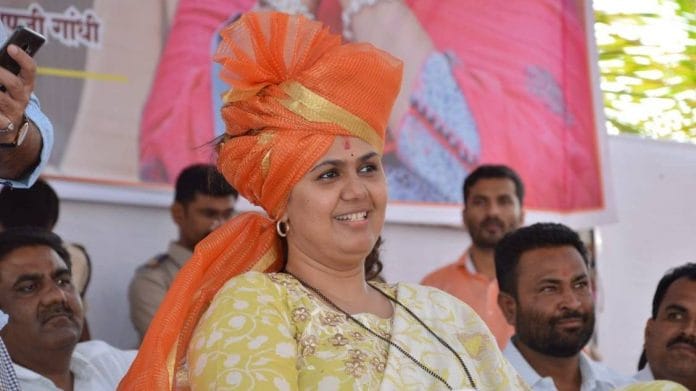Pankaja Munde’s husband and mother are directors in one of the 14 distilleries accused of skimping on tax payments.
Mumbai: A distillery with Maharashtra minister Pankaja Munde’s family members as directors is among over a dozen locked in conflict with the state government over crores of rupees in alleged excise dues.
At the heart of the row is a September 2015 government notification that specifies the amount of starch required in the different grains used by distilleries to manufacture alcohol. The notification spells out that a certain level of starch content should yield a specific amount of alcohol, and this estimate is then used as a yardstick to levy excise duty.
The state excise commissioner’s office has accused 14 distilleries in Maharashtra of violating this rule by using grains with higher starch content for a higher yield without informing the government, thus depriving the government of crores in excise tax.
According to sources, the excise commissioner has issued a showcause notice to the companies, specifying the dues they are supposed to pay.
The companies
One of the companies is the Aurangabad-based Radico NV Distilleries Limited, in which Munde’s husband Charudatta Palwe and her mother Pradnya Munde are directors. Munde, the minister for women and child development as well rural development in the Devendra Fadnavis cabinet, was also on Radico’s board till a few months before the assembly elections of 2014.
The company has been slapped with a tax demand of Rs 93.44 crore. Munde and her husband were both unavailable for comment.
The other alleged offenders include a Nashik-based distillery of Pernod Ricard India Private Ltd, a subsidiary of the France-based global alcohol major, which has been asked to pay Rs 62.80 crore, besides the Nanded-based Pioneer Distilleries (Rs 59.90 crore) and Amravati-based Anand Distilleries (Rs 65.46 crore).
Also read: The IAS officer who everyone believes is Maharashtra’s ‘second CM’
The excise department’s contention
The 14 distilleries are all grain-based, deriving alcohol by fermenting jowar, wheat, bajra, maize, dehusked rice, tapioca and barley.
“The September 2015 notification specifies the starch content for the approximate yield for grain-based distilleries using jowar, wheat, bajra, maize, dehusked rice, tapioca, potatoes and barley,” Vishwanath Indise, joint commissioner of state excise, told ThePrint.
He said the calculations were arrived at after a government-constituted committee, including industry representatives, “studied the issue and conducted field visits”.
According to the notification, jowar with a starch percentage of 75 to 80 should yield 490 to 520 bulk litres per metric tonne, while wheat with a starch percentage of 65 to 70 ought to give 430 to 460 bulk litres per metric tonne.
The excise duty is charged at Rs 250 per proof litre of alcohol. While bulk litre is the entire volume contained in a bottle of liquor, proof litre is the actual alcohol content.
“The distilleries should have used grain having the specified starch content,” Indise said.
Distilleries slam notification as baseless
The 14 distilleries have written a joint letter to the excise commissioner against the showcause notice.
A senior official from one of the distilleries called the entire exercise “unfair and baseless”, saying the specified starch content yielded a lower amount of alcohol than laid out in the notification.
“There is no clarity on how the government arrived at the quantity of starch and the resultant yield,” he said. “The notification does not explain that anywhere.”
He added that breweries used grains not fit for eating. “It is impossible to get the levels of yield that the government has specified… with the kind of grain distilleries use,” the official said, adding there was no clarity on how the government had arrived at the penalty figure either.
Indise, however, claimed that the distilleries didn’t follow a rule mandating them to report lower-than-expected alcohol yield from a given starch content. Some distilleries disputed this claim, saying they had been making the disclosure every month.
Also read: How Congress & NCP evolved into an aggressive, united opposition in Maharashtra
ThePrint is the digital partner for the Nipman Foundation Equal Opportunity Awards.







Two submissions. For a high value product like grain based alcohol – most alcohol in India, including so called whisky and brandy, is made from molasses – unclear why grain that is unfit for human consumption should be used as a raw material. That is bound to have a bearing on the quantity, perhaps also the quality, of the alcohol produced. More importantly, if the distilleries were producing more alcohol than they were disclosing to the state excise authorities, it is not just a statistical or yield variance. There would have been clandestine physical removal of non duty paid alcohol from the distillery premises.